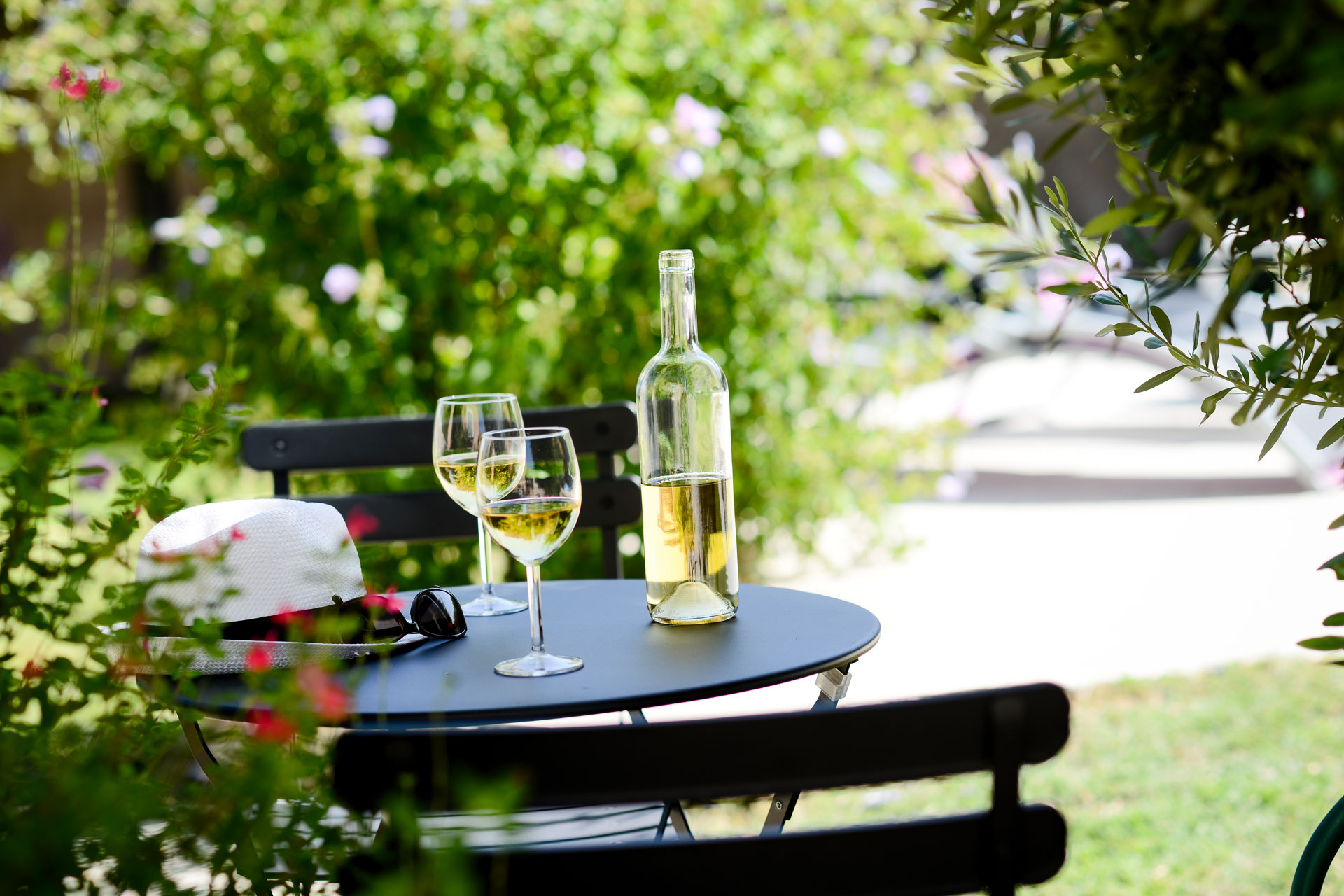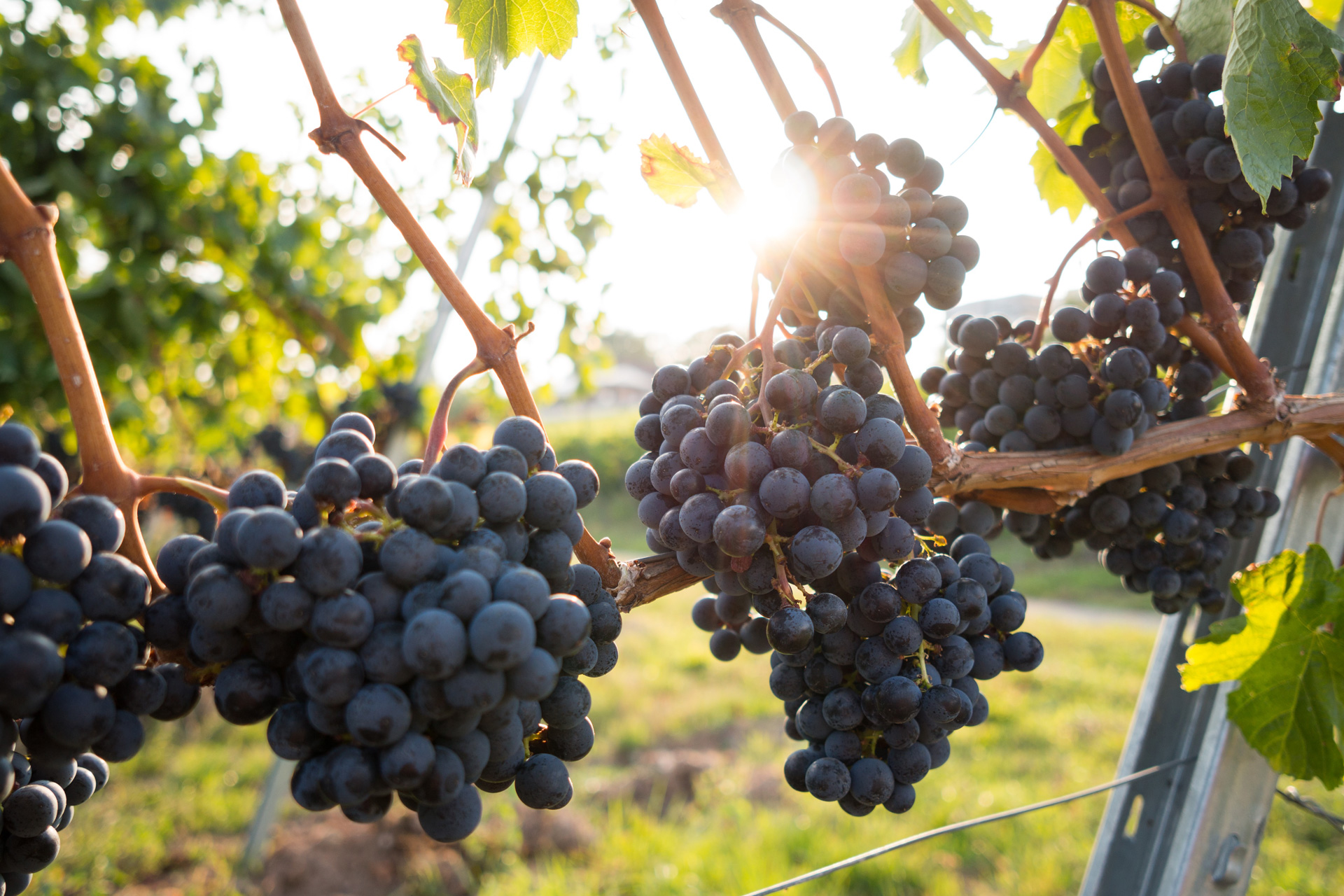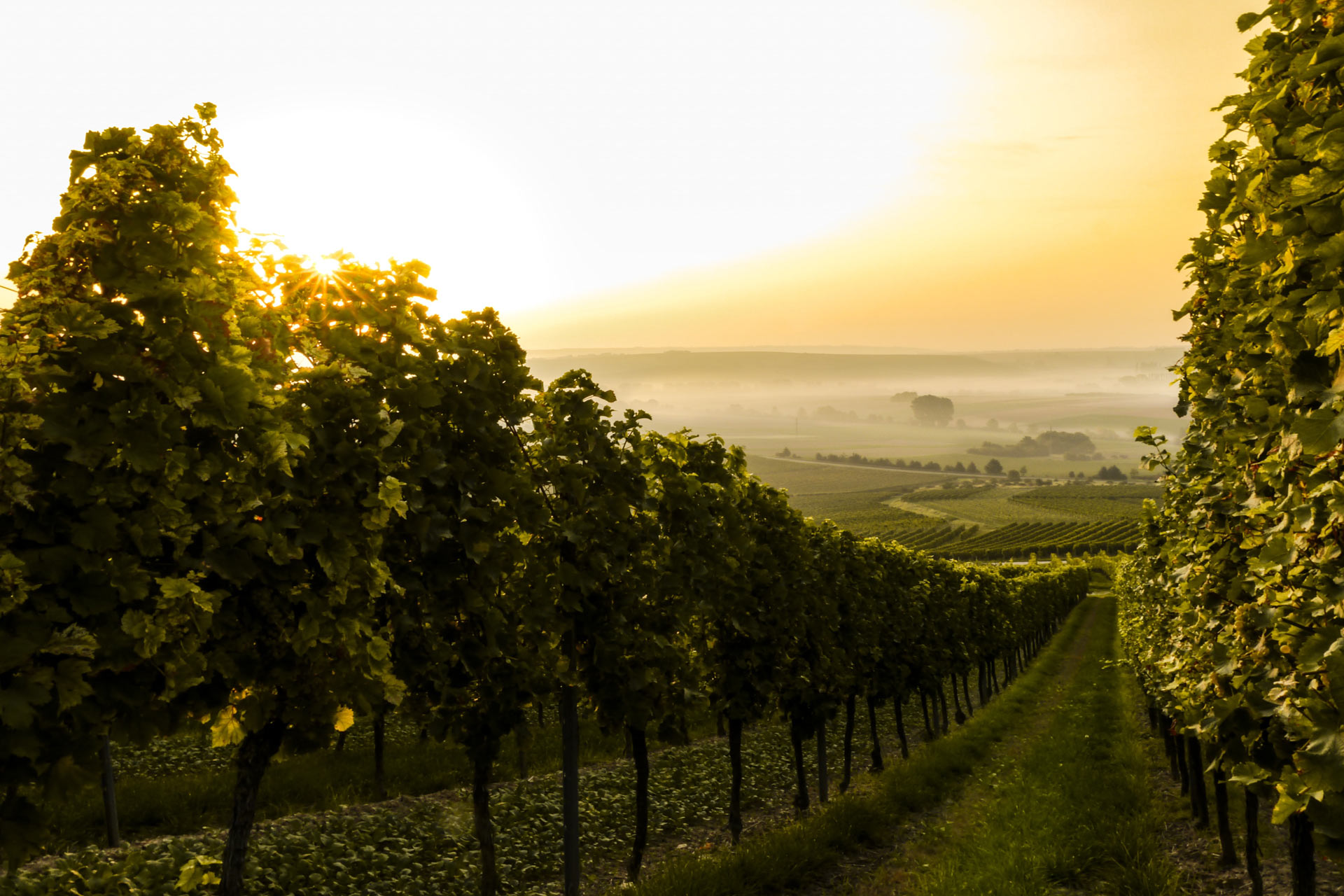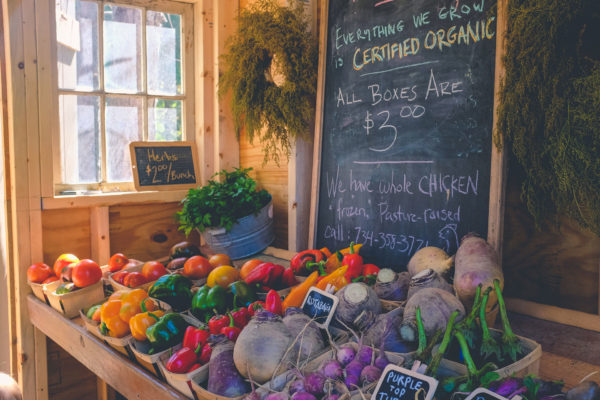A Guide To Organic Wine
By
2 years ago
What does the term mean, and will it give you less of a hangover?

These days, every cool new bar on the block seems to serve organic wine. More and more organic vineyards are cropping up across the UK too, hence the increasing collection of bottles appearing on supermarket shelves. The organic market is on the up: it’s now worth a record £3.1 billion in the UK, according to the Soil Association, and organic wine in particular has seen significant growth in recent years. But what does the term actually mean? Read on for everything you need to know.
A Guide To Organic Wine
What Is Organic Wine?
Unlike the umbrella category of ‘natural wines’, the organic variety is a legally protected term which adheres to specific farming principles. According to the Soil Association: ‘Organic wine production has to meet strict requirements, covering everything from pesticide use and land management to preservation and storage.’
While the principles differ slightly between different accreditation companies, they all place high importance on promoting soil health and terroir. As the Soil Association outlines: ‘Organic farms put soil at the forefront of their practice, encouraging strong root structures and healthy, biologically active soil that’s teeming with life.’ Most pesticides are not allowed in organic farming – of the 300 or so allowed under EU law, just 20 fit are permitted under organic standards, all of which come from natural ingredients. This helps promote biodiversity on farms, attracting wildlife like bees, birds and butterflies. Organic winery Oxney Estate, for instance, cites ‘significant improvements to the countryside… the wildlife we see here with so many birds is just incredible’.

Unsplash
What’s The Difference Between Organic, Natural and Biodynamic Wine?
While wine is often referred to as natural, the term is tricky to define – and not protected by law. As Berry Bros & Rudd explain: ‘Very fashionable, “natural” is a diaphanous term that isn’t legally defined, and can be bandied around at will. Those using the term are often – but not always – producers operating on the fringe of what’s possible, making wine with minimum intervention – think minimal technology in the vineyard and winery, native yeasts for ferments, neutral oak and little-to-no added sulphur.’
Biodynamic wine shares many similarities with organic, such as the use of pesticides and herbicides. Yet, as the Soil Association highlights: ‘Biodynamic growers tend to incorporate a more philosophical ethos to their farming, seeing agricultural sites as holistic organisms, with their own individual nature.’ The style of winemaking originates from Rudolf Steiner, and often includes planting with the phases of the moon, plus an emphasis on a closed-loop system.

Is Organic Wine Better For You?
The crucial question: will organic wine give you less of a hangover? A drink that comes from a more naturally and thoughtfully cultivated landscape feels like it should be better for you – and there is some science to show it is. Organic wines tend to have less sulphur dioxide, an additive commonly used in wine which some people are allergic or intolerant to, and can cause symptoms such as headaches. However, a hangover is caused by excessive alcohol consumption, and even if it’s organic wine you’ve gone overboard with, you’re going to feel it the next day.
Where To Buy Organic Wine
Many supermarkets stock organic wine nowadays, but if you’re looking for more specialist stores check out places like Vintage Roots, Pure Wines and Buon Vino Natural Wine. Look for the certification on the label, and note that, like all organic produce, these bottles will usually be slightly more expensive due to the more careful production process.






